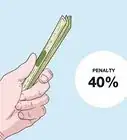wikiHow is a “wiki,” similar to Wikipedia, which means that many of our articles are co-written by multiple authors. To create this article, 17 people, some anonymous, worked to edit and improve it over time.
This article has been viewed 285,171 times.
Learn more...
When buying or selling a car, you may need to authenticate the buyer/seller's signature. Specific requirements differ greatly from state to state, so you should do some research beforehand. In order to provide some idea of what to expect, the explanation that follows includes examples from actual states.
Steps
Preparing to Notarize Your Car Title
-
1Do your research. Each state has its own procedures, and the differences can be substantial. A number of states require no notarization of auto sales, while others have rather lengthy lists of requirements. You can find out more about your state here.
-
2Determine what documents are required. While you obviously must bring proof of ID, notaries are not just providing validation for the signature but are in fact guaranteeing that each side is prepared to live up to the contract. Additionally, in some states the title itself becomes a legal contract, while in other states there are separate applications associated with title transfers (North Carolina,[1] for example, has a separate form that requires notarization).Advertisement
-
3Make sure you possess the right to sell. This may sound obvious, but again there are notable differences between states on who possesses the right to sell.
- Minors often do not have the right to sell a vehicle without the authorization of a parent or guardian, regardless of the name on the title.
- Many states prevent the sale of vehicles that still list liens on the title of ownership. It would be wise to bring proof of a lien release with you to the notary's office.[2]
-
4Locate a notary public. You can find a notary public at:
- A local bank or credit union. Many financial institutions have a notary public who can notarize documents for a small fee.
- Most UPS stores and pawn shops will have a notary available for a small fee, though it is always best to call ahead and verify availability.
- Notary Rotary. Notary Rotary provides a database of notaries public searchable by zip code.
-
5Schedule an appointment with the notary.
Getting the Document Notarized
-
1Determine who needs to be there. Remarkably, even among all the states that require the signature of a notary, there are again many differences. For example:
- The state of Ohio requires that both buyer and seller sign in front of the notary, or at least inform the notary in person that they did sign the document.[3]
- In North Carolina, only the signature of the seller must be notarized.[4]
- Notaries in Montana can notarize open titles--that is, they can authorize the sale of a vehicle without a buyer ever being identified on any document.[5]
-
2Take the required items to your notary appointment. At the least, you will need the title, your state issued photo identification (“ID”), and the notary fee. ID must be issued by the state (such as a drivers license) or the military (such as a military ID card) and contain a photo.[6]
-
3Sign the title in front of the notary. Use blue or black ink.[7]
- If you are the seller, sign your name exactly as it is listed on the title. For example, if the title uses your middle initial, you should sign using your middle initial as well.
- If you are the buyer, sign your name exactly how you wish for it to appear on the title. For example, if you want to use your middle name, sign the title using your middle name.
-
4Have the notary sign and seal or stamp the title.[8] The Notary will sign and then stamp or seal the title, verifying that the signatures are those of the buyer and/or the seller.
-
5Pay the Notary fee. Notaries may charge a small fee for their services.
- In Ohio, the fee to have both signatures notarized on a car title would be $4.
- In California, the maximum fee that can be charged by a notary in this circumstance is $10.
Community Q&A
-
QuestionWhat should I do if the seller doesn't sign the title exactly as his name is on the front of it?
 Community AnswerIn general, signatures may sometimes look nothing like the signer's printed name, as some folks sign differently on the signature areas on forms and such, as opposed to how they would print out their name on forms (for example, titles, cheques, etc.). You could ask the seller to sign the document again, in front of you.
Community AnswerIn general, signatures may sometimes look nothing like the signer's printed name, as some folks sign differently on the signature areas on forms and such, as opposed to how they would print out their name on forms (for example, titles, cheques, etc.). You could ask the seller to sign the document again, in front of you. -
QuestionIf a friend is giving me a truck for free, does he have to put 'free' on the title, or a certain monetary amount?
 Miss ElizabethCommunity AnswerHe should put "gift" in the area where the price would normally go. However, check the wording for your state to make sure.
Miss ElizabethCommunity AnswerHe should put "gift" in the area where the price would normally go. However, check the wording for your state to make sure. -
QuestionDo the buyer and seller both need to be present to notarize a car title?
 Community AnswerIt depends on the state in which you live. The laws are different in every state.
Community AnswerIt depends on the state in which you live. The laws are different in every state.
References
- ↑ https://www.dmv.org/nc-north-carolina/title-transfers.php
- ↑ https://www.dfs.ny.gov/consumers/auto_insurance/how_to_obtain_a_lien_release_on_a_vehicle
- ↑ http://ohionotaries.org/cautionary-documents
- ↑ http://www.dmv.org/nc-north-carolina/title-transfers.php
- ↑ https://sosmt.gov/notary/mvtitles/
- ↑ https://www.autoblog.com/2016/02/27/how-to-get-your-car-title-notarized/
- ↑ https://www.autoblog.com/2016/02/27/how-to-get-your-car-title-notarized/
- ↑ https://www.autoblog.com/2016/02/27/how-to-get-your-car-title-notarized/
About This Article
When you buy or sell a car, you might need to notarize the car’s title. Since every state has its own rules, do some research beforehand. While you’ll have to bring proof of your ID when you have your signature notarized, you may also have to provide additional documents to prove that you can live up to the contract. Once you know what you’ll need, find a notary public at your local bank or credit union, UPS store, or pawn shop. Before making your appointment with the notary, figure out who needs to be there. While in some states only the signature of the seller needs to be notarized, in other states both the buyer and seller will have to be present. Once you’re with the notary, sign the title in front of them in blue or black ink. To learn how to pay the notary fee, keep reading!
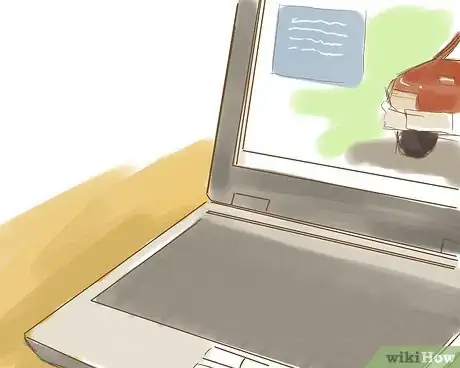
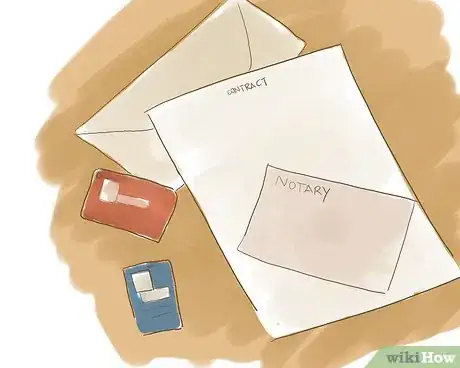


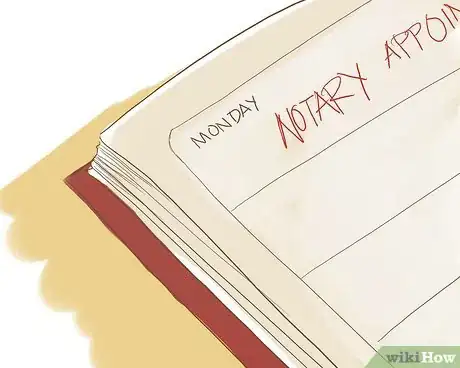

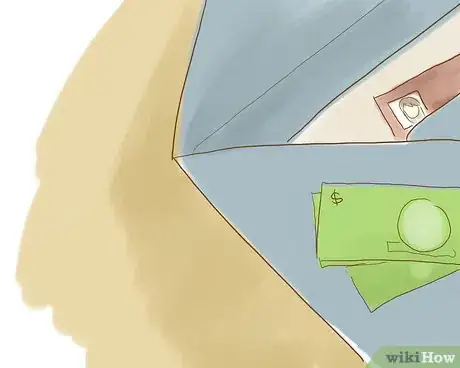
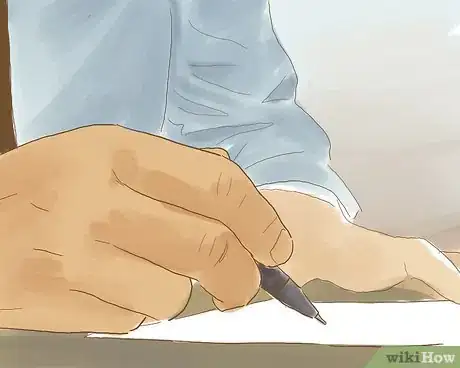
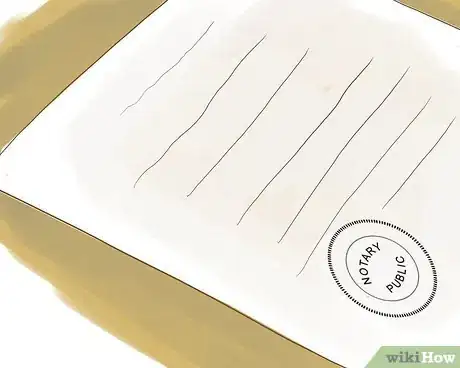
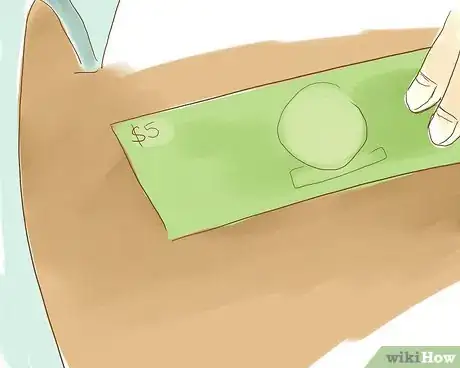
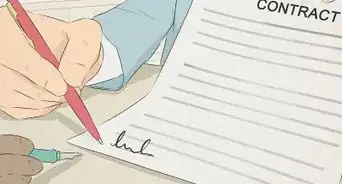
-Step-17.webp)

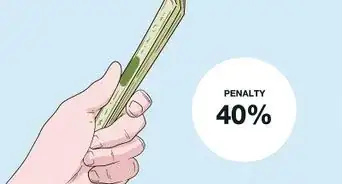



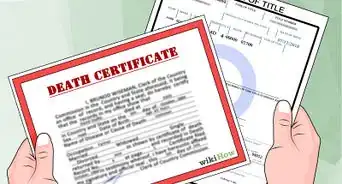

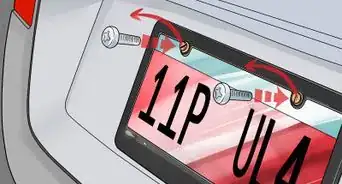

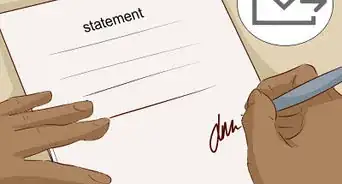
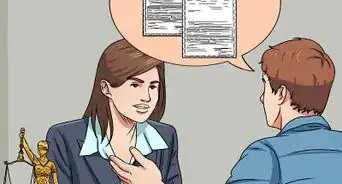
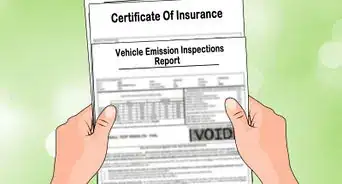







-Step-17.webp)

